Evil killer who burned Chicago’s famous ‘Walking Man’ to death learns his fate
A career criminal from Illinois will serve 47 years in prison after pleading guilty to setting Chicago’s beloved “Walking Man” on fire while he slept helplessly on a city street.
Joseph Guardia, 30, almost faced trial for the brutal murder of “gentle soul” Joseph Kromelis, but on Wednesday the Melrose Park man pleaded guilty and accepted a plea deal on first-degree murder charges.
Guardia must serve his entire nearly 50-year prison sentence but will receive credit for 881 days for time spent in jail after his 2022 arrest as part of the plea deal.
Joseph Guardia (pictured), 30, was nearing trial for the brutal murder of ‘gentle soul’ Joseph Kromelis, but on Wednesday the Melrose Park man pleaded guilty and accepted a plea deal on charges of first-degree murder
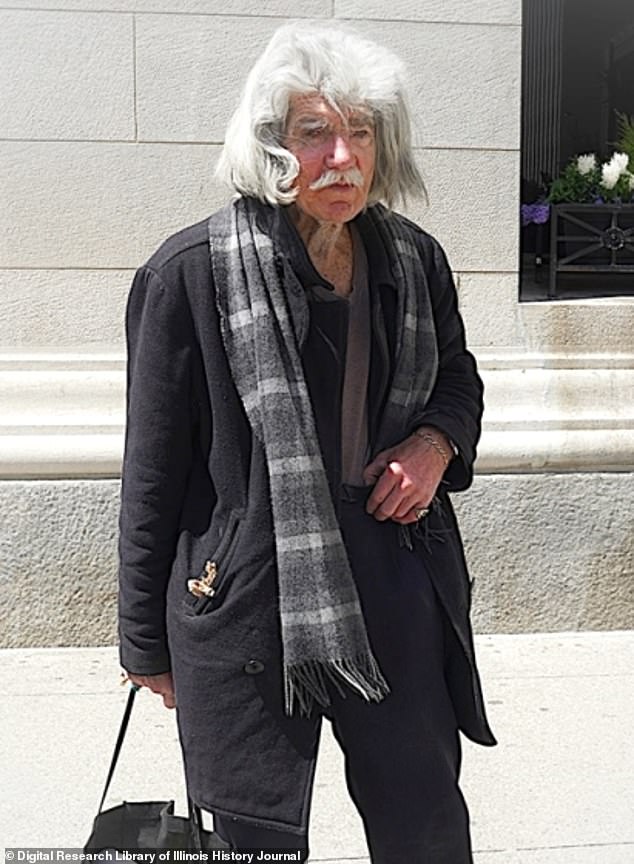
Joseph Kromelis died on December 11, 2022, aged 75, after suffering burns to more than 50 percent of his body after Guardia poured a flammable liquid over his head and set him on fire in May 2022.
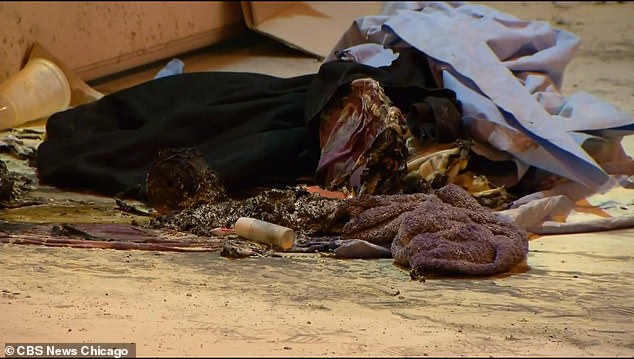
More than 65 percent of his body was burned, including his face, making him unrecognizable. His iconic mustache was singed and he couldn’t close his eyes or blink because his eyelids were burned off
His victim, a fixture in the Chicago neighborhood, was dubbed the “Walking Man” because he walked miles through downtown every day – something he had done for decades after a series of misfortunes left him homeless.
In early 2010, developers bought the single-family home he lived in and four of his siblings died in quick succession, leaving him sad and on the streets.
Kromelis eventually died on December 11, 2022, seven months later, at the age of 75 he suffered burns to more than 50 percent of his body after Guardia poured a flammable liquid over his head and set him on fire in May 2022.
During the court hearing earlier this week, prosecutors read a victim impact statement from the victim’s sister, Kromelis’ only living sibling.
“My heart is broken,” Erica Singree of Alaska wrote in her statement. “My brother just loved Chicago. He had his routine of walking through the streets. He wanted to be left alone. He never hurt anyone. He was an angel with wings.”
Singree sadly passed away on Sunday, just days before learning of the fate of her brother’s killer.
Her daughter Jami, who also lives in Alaska, attended the Cook County court hearing via video conference and noted her mother’s stories about her uncle’s impact on Chicagoans.
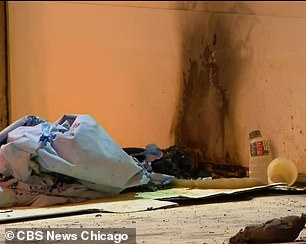
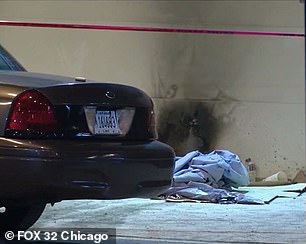
Joseph Kromelis was brutally burned in May 2022 and would succumb to his injuries months later in December

During the court hearing earlier this week, prosecutors read a victim impact statement from the victim’s sister, Kromelis’ only living sibling, after the other three died in quick succession years earlier. (Image: Kromelis through the streets of Chicago)
In her statement, the elder Singree also described her brother as kind, gentle and intelligent.
“I hope you can live with yourself (for) what you did,” she wrote, referring directly to Guardia. ‘There was no reason to hurt an innocent man who wanted peace. My brother wanted peace, to wake up the next day and continue living. But you made a choice and took it from him.
“There will be no more stories of Joseph Kromelis walking the streets of Chicago. My beloved brother, rest in peace.”
Kromelis, often noted for his strikingly dapper appearance, had fallen victim to another heinous crime in May 2016 after a man with batons attacked him, earning him an astonishing $30,000 donation and a T-shirt drive for charity, which gave him an extra $6,000 to get going again. his feet.
Yet his final, fatal attack, which took place outside Trump Tower on the 400 block of North Lower Wabash Avenue, was captured on surveillance video that led police to the distinctively tattooed Guardia.

Kormelis was so much a part of Chicago that he appeared in the city’s street art

Joe Kromelis, second from left, with his brothers John, Peter and Bruno and his sister Irene. Kromelis was born in Germany on January 13, 1947 to Lithuanian parents, and he was one of six children who emigrated to America with them.
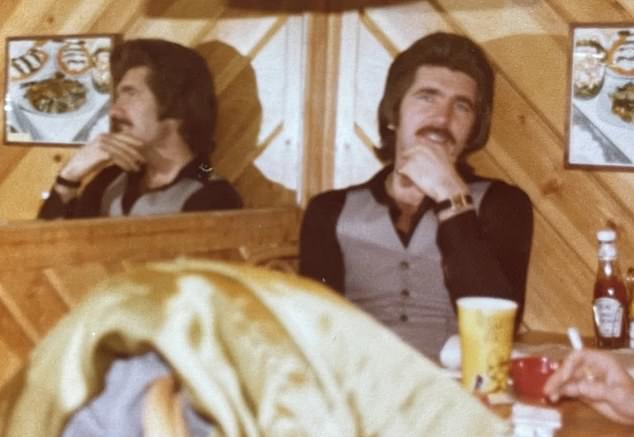
Joseph Kromelis, known as ‘Walking Man’, pictured in a café in the 1970s
Guardia told police in a recorded interview that he found a cup filled with gasoline and set fire to a pile of blankets, court records show.
Guardia said he was not aware there was a person under the covers, but prosecutors said Kromelis’ head and lower legs were visible.
When asked about his motive, Guardia told prosecutors he was “an angry person.”
Much of the court proceedings since his arrest have focused on Guardia’s previous hospitalizations and his mental health, citing the killer’s diagnosis of bipolar disorder and his more than two dozen arrests in three states.
Guardia’s attorney argued for a “guilty but mentally ill” verdict, but was ultimately unsuccessful.
His plea was accepted in front of Judge Timothy Joyce at the Leighton Criminal Court Building on Wednesday.
